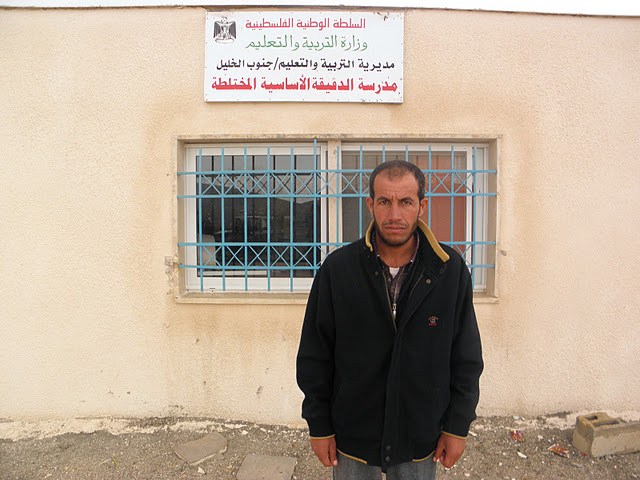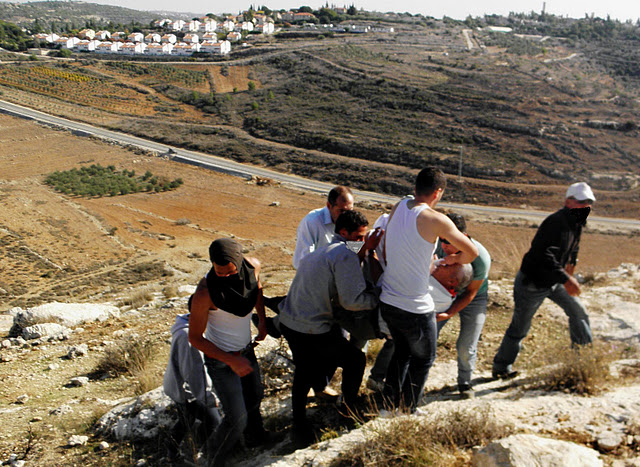Tag: B’Tselem
-

Dkaika: Israel continues to expel Bedouins
by Aida Gerard 23 November 2011 | International Solidarity Movement, West Bank The entire Bedouin village of Dkaika encounters demolitions, and all the villagers face expulsion. Every single construction of Dkaika has a demolition order totally over 75 demolition orders including a mosque, a school, a graveyard, water cisterns, housing tents, and folds for sheep.…
-

As B’TSelem documents shooting of man, employee is arrested
by Aida Gerard 11 November 2011 | International Solidarity Movement, West Bank A 55 year old Palestinian man was taken to hospital from Nabi Saleh due to an injury from a rubber coated steel bullet. After two hours of demonstrating the Israeli Occupation Forces invaded Nabi Saleh and arrested one Palestinian, 36 year old Bilal Tamimi,…
-
Grazing on tragedy and the promises of scripture in South Hebron Hills
1 September 2011 | International Solidarity Movement, West Bank The army is establishing two virtual lines for each of the settlements that are near a Palestinian village. The first line, if crossed by Palestinian demonstrators, will be met with tear gas and other means for dispersing crowds. The second line is a “red line,” and…
